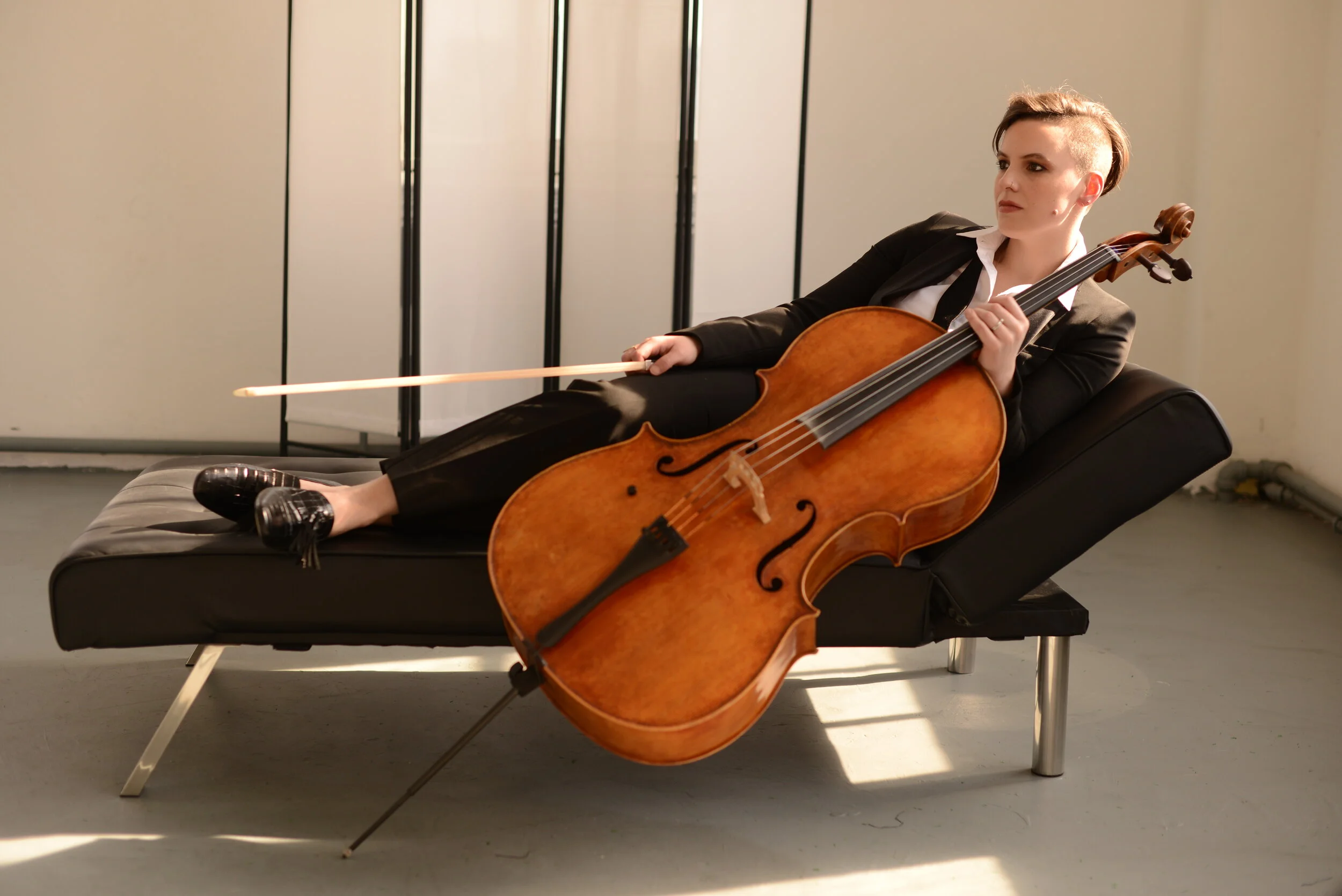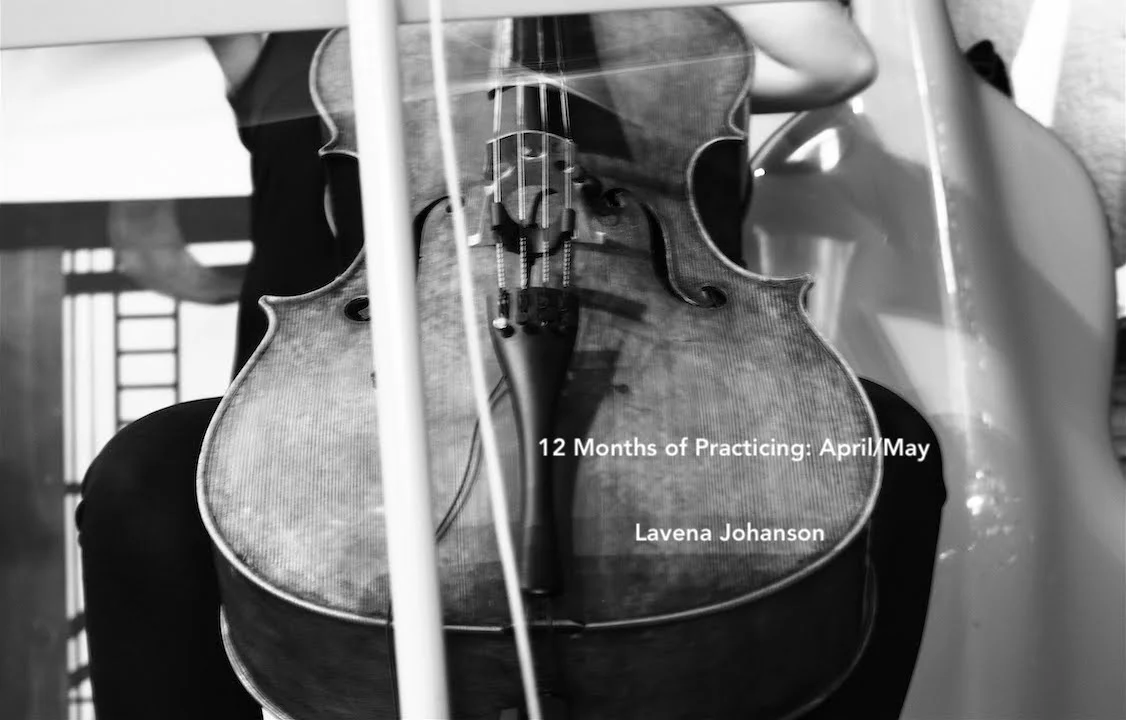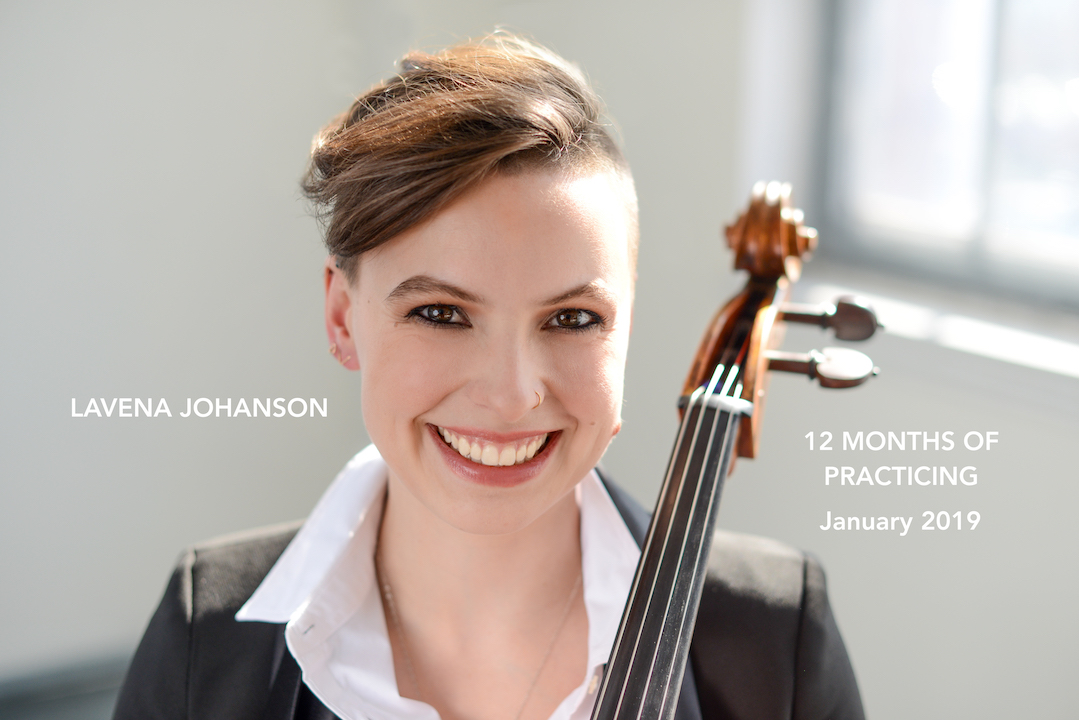This post is to let everyone know about a year-long project I’ve started called 12 Months of Practicing! I’ll be posting one video on YouTube every month for 12 months, summarizing my journey with practicing throughout 2019. Click here to watch my first video of the year!
In 2018 I participated in the social media movement #100daysofpracticing on Instagram, but had to cut it short because I realized that social media was not a positive influence in my life. Of course, once I quit Instagram, I lost the accountability of #100daysofpracticing and fell off the wagon immediately. Looking back at the total number of days/hours I had practiced in 2018, I felt guilty, but then I realized that by gathering those statistics I had given myself a gift. The data made it clear that my longest streak of practicing happened in February, which was the same month I participated in #100daysofpracticing. So I thought, why not figure out a way to do it again, but without using social media and for a longer period of time?
This is where 12 Months of Practicing comes in. I’ve come up with this system not only to keep myself accountable, but also to explore the baggage I carry around when it comes practicing. My goal is to make this process relatable not only to other musicians, but also to anyone who struggles to consistently do the thing they know they need to do.
I’ve also decided to write a companion post on my website to go with each video. The idea is to expand on things that I mention in the video but don’t have the opportunity to discuss at length. In this case, I want to follow up on two things: 1) the fact that I’ve never practiced consistently, and 2) the impact that toxic practicing culture had on me as a young musician.
Whether you’re a musician or not, you’ve at least heard the saying, “How do you get to Carnegie Hall? Practice, practice, practice.” Carnegie Hall is one of the best music performance halls in the world, and the message objectively makes sense - if you want to play in the best hall, you need to be the best. In order to do that, you have to work as hard as you can, which means practicing as much as you can.
Here’s the issue that creates baggage for musicians, right from the beginning: we are all taught to have the highest expectations of ourselves. To be a perfectionist is the only way to become the best. But every day we don’t practice, we lose time, and there already isn’t enough time. Maybe if you start when you’re 3 years old you’ll be okay, but if you start later than that there is already a deficit, and it gets bigger every year you wait. I started cello when I was 6 years old, but most kids in my public school system in Seattle were introduced to instruments when they were 9 or 10, which is on the late side. Think of all the work they’ll have to do to keep up with the 4-year-olds who already have a year of practicing on them. And if you dare to start even later than 10? Forget about it, unless you’re ready to work your ass off to catch up with everyone else. We are conditioned to think that we have never practiced enough, that we have started with a deficit, and that the only thing we can do to get out of it is to make our whole life about practicing and to do it as much as possible. If you can handle this kind of pressure, you might end up at a conservatory. That’s when things really get good.
We all know 18-year-olds can be judgmental jerks. So imagine the pressure I’ve already described, and then imagine if the negative voice you have in your head was personified by your immediate group of peers. Add those two things together, and now you know what it’s like to be at a conservatory. If you’re not a musician, a conservatory is basically going to music university, the point being to major in your instrument, take lessons, and practice all day (with some other musical extracurriculars like orchestra, and basic humanities classes that almost no one takes seriously). Once you are there, it is hard not to believe that the whole point of your existence is 1) to compare yourself as a musician to everyone else, and 2) to have others compare you to everyone at the school who plays the same instrument as you. This is an enormous amount of pressure that everyone is expected to just deal with privately. The question “How much did you practice?” is asked incessantly (with implicit and sometimes explicit judgement about the answers), probably because practicing is the only thing that anyone can really control. You can’t control how talented you are, and you definitely can’t control how talented other people are.
My experience with this toxic practicing culture made me feel like there were two options. I could make my whole life about practicing, neglecting my physical health and my mental health, not to mention my studies. Or the other option…rebel. Choose NOT to make my life about practicing. Do other things. Read. Watch TV. Be in love. Take classes about non-musical subjects. Be friends with people who aren’t musicians. Go to the gym (a subject for another time). This is the path I chose, and because I was an arrogant, judgmental, 18-year-old jerk just like everyone else, I took pride in the fact that I could get by without practicing. The short-term gains were great. People were jealous because I got to say that I barely practiced, but I still got to have amazing performance opportunities. It wasn’t fair.
And yet. The long-term results of this rebellion were: stasis (if you don’t practice, you don’t get better), and an inability to make myself want to practice, because I had spent years being rewarded for not practicing. Lots of questioning and feeling sorry for myself ensued: Why is it harder now? Life is unjust. Time to hide in bed and avoid practicing. All of this compounded the problem, resulting in a turbulent cycle of not practicing, feeling guilty, making grand proclamations about practicing every day for 5 hours for the rest of my life, failing on the first day, feeling overwhelmed, hiding in bed, and starting over.
I finished my conservatory studies five-and-a-half years ago, and only now am I learning how to deal with the pressure and baggage of practicing, how to set reasonable goals for myself, how to have my own voice as a musician and artist without comparing myself to others, and how to be kind to myself when I don’t live up to my perfectionistic expectations.
I hope to explore all of this and more this year, and invite you to join me! If you saw my video or read this post and found any of it helpful or cathartic, that’s awesome and it means so much to me. Thank you for your time, and please come back in March for the next installment(s) of 12 Months of Practicing!





